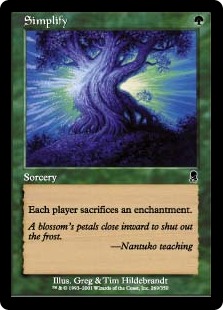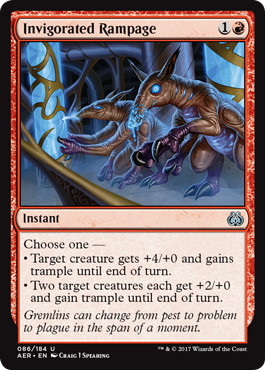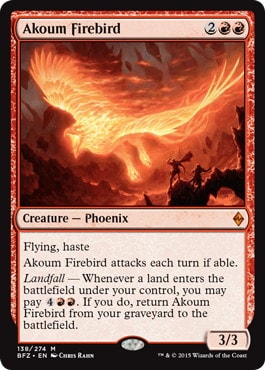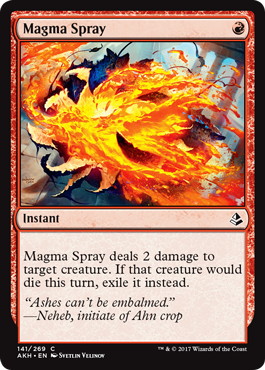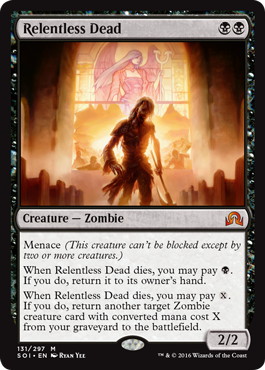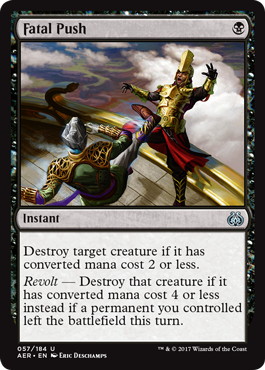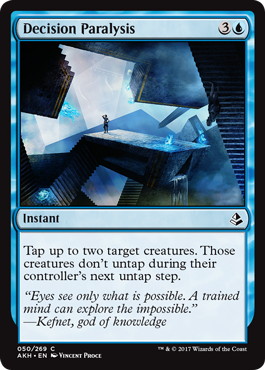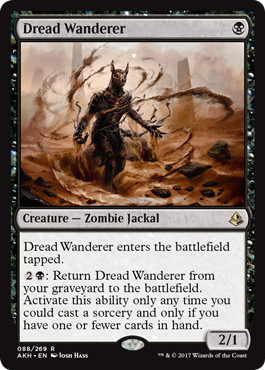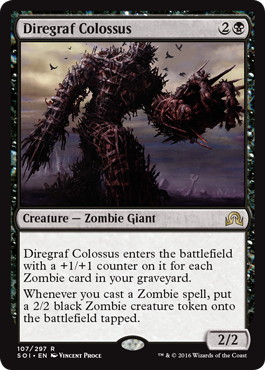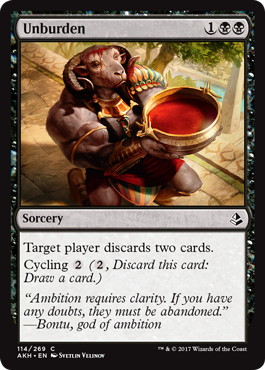Introduction
For this article, I was honestly not sure what I could write about. In my last two tournaments, I played Mono-Black Zombies in Standard (for Pro Tour Hour of Devastation) and Green-Red Scapeshift in Modern (for Grand Prix Birmingham).
I scored solid finishes in both events, but those two decks strike me as fairly simple and I did not feel like I could teach you much. Still, the fact that I picked simple decks for important events, did well with those and felt good about it caught my attention as very non-typical of me, and made me realize something that I want to share with you : I have suffered from a strong bias towards complex decks for most of my magic career, and killing this bias made me considerably stronger.
There are several bad reasons why we feel like we should play a hard deck when we should not. Since I have used most of them, I will try to break them down for you, and explain why they are just excuses that I used to justify playing inferior decks over time. And just in case you would not believe me and be kind enough to think that I am just trying to be modest, let me give you some examples :
-I played UR Dynavolt Tower at Pro Tour Kaladesh while I had the exact list of Blue-White Aggro that posted the best record at that event
-I played 4 colors Copycat/Marvel/Energy Aggro at Pro Tour Aether Revolt while I had a great list of Mardu Vehicles that placed 6 in the top8
All right, believe me now? Good. So, let us start with…
Fake reason #1 : 《 I’ll win more with tighter play 》
We playtest together. I am playing that sweet 4 colors Aggro-Combo-Lock-Reanimator deck that I love, and you are on the most basic list of Ramunap Red. I go 4-6. But you know, I could have taken so many other decisions, so many other lines. I feel like I could have played so much better. The match-up has to be at least 50%, right?
Wrong. There is absolutely no guarantee that I will play any better at the Pro Tour. And if I can play better, why not against you? Bottom line is : you have to trust your testing. Just because you feel like a perfect player would get better results does not mean that (a)-you are right or (b)-you will become that better player comes the event you prepare for.
Fake reason #2 : 《 I want to be able to outplay my opponent 》
Oh, sweety, we all do. But what does this actually mean? Let us say that 《 outplaying your opponent 》 means that you are able to leverage your insane skills to make sure you play your deck to its full potential. And here, I can see why you would feel like you leave some equity behind by playing something simple.
For example, if decks A and B have a potential of 100 when played to perfection, but the average player can play deck A at a rate of 95 and deck B at a rate of only 80, then there is indeed more room to use your skills with deck B. Except for two things : first, and this comes back to reason #1, both decks acutally have the same potential, so even if you can play both decks to perfection, they are equally good. Second, Magic is an extremely hard game, and to be fair, even a deck that looks easy will leave room for a ton of mistakes to an average player. In other words, no matter which deck you play, you will never reach that 100% of its potential ; in other words, there will always be percentages to gain by playing better.
My recent experience with Zombies could be relevant in that regard : it is a deck that does not require tons of decisions, the options are usually easy to compute and the board rarely gets super complex because you mostly win as soon as triggers start accumulating.
Still, despite decent testing and a fine understanding of standard, I lost a game to Red-Green Pummeler that I could have won because I could not figure whether or not I could afford to play around 《Invigorated Rampage》, and another one against Black-Red Eldrazi where I misunderstood his sideboard plan and sided as a control deck when I should have tried to race his 《Akoum Firebird》.
What I am trying to show here is that, even when you play a straightforward deck, a lot of other factors still apply and make it unrealistic that you might be over the skillcap, not the least of which is your opponent’s deck. Just think Modern Infect, for example : you will always have to play super tight against it, no matter which deck you played. So, to summarize : never will a deck be too easy for you, and you will always improve your win percentage if you play better than the rest.
Also, if you are good, you probably do not notice most of what you do right ; I realized it watching others playing the Zombies VS UR control match-up (and getting crushed harder than they should have). This is a match-up where you actually want to keep removal+1 mana up whenever you have 《Relentless Dead》 into play, so that you can stop it from getting exiled by a 《Magma Spray》.
Having played the match-up before, this is a very automatic thing to do for me, but I was shocked by how many players did not do that and ended losing with a bunch of 《Fatal Push》 in hand that you have won them the game. Basically, you do not realize that you are leveraging your skills, until you see someone who does not.
Fake reason #3 : 《 I tilt because when I lose, I feel like there was nothing I could do 》
This one goes a little deeper. Not many players tilt because they could not do anything, and if you do, then you should actually work on this first because losing pointblank is a big part of the game, no matter which deck you picked. But from my experience, people actually tilt much harder when they lose due to their bad decisions. And even when they do not, the simple fact that, with a very obscure deck, you may second-guess every line you took is actually not good during the tournament.
When you lose, you should just move on the next game with your head clear, and simple decks allow you to do that. You lost because he drew the nuts? Good, nothing you could do here, so it is not worth thinking about it. You lost because you made a bad play? Well, now you did spot it, good for you, now you can play better : you just leveled up. But if you go into game 2 still wondering whether or not you might have won game one, you are just leaving a lot of equity by the wayside.
And that is a problem I know first-hand : I very rarely tilt, because I am old and tired, but I can easily spend hours wondering if I picked the right lines. It made me a better player, but in the short term – and a tournament is always short term – it is bad for you.
On the other hand, how often can you say 《 I played this game perfectly ! 》. I think the better you are, the more likely it is that you never do, because you realize how deep the game is. But, if your deck is easy enough, you might sometimes get close. And trust me, there are not many feelings as reward as being 2-0 after round 2, and feeling like you did everything right. Hey, the simple fact that you know you might do everything right is a huge boost to your mindset.
I know you are not convinced, so I will try a metaphore here. Let us say you are going for a car race. You get to either drive a simple car, one that you know inside out, or a super fancy one with tons of cool new features and a bunch of buttons you never pushed. Which one would let you go into the race more comfortable? Of course, if the fancy one is faster, then you should learn how to drive it, do not get me wrong here. I am not saying you should always pick the simple choice. But my point is : being easy to play is definitely a point that goes in favor of a deck, not against it.
My simple deck, and why I like it.
|
20 《Swamp》 4 《Ifnir Deadlands》 1 《Westvale Abbey》 -Land (25)- 4 《Cryptbreaker》 4 《Dread Wanderer》 4 《Relentless Dead》 4 《Diregraf Colossus》 4 《Lord of the Accursed》 1 《Kalitas, Traitor of Ghet》 -Creature (21)- |
2 《Fatal Push》 4 《Grasp of Darkness》 4 《Dark Salvation》 3 《Liliana's Mastery》 1 《Aethersphere Harvester》 -Spell (14)- |
3 《Lay Bare the Heart》 2 《Unburden》 2 《Murder》 2 《Fleetwheel Cruiser》 2 《Skysovereign, Consul Flagship》 1 《Transgress the Mind》 1 《Doomfall》 1 《Never // Return》 1 《Aethersphere Harvester》 -Sideboard (15)- |

This is the list I built with a few friends for their RPTQs, and it could also be the deck I will play for GP Turin in two weeks. Everything about it is straightforward : the interactions are obvious, their are not too many instants, the lands basically just produce mana as god intended them to, and the sideboard cards are super clearly targeted at one deck or another.
As you could expect, there is little danger to miss a trigger, play lands in the wrong order, cast something in their upkeep instead of waiting for the draw step…and so on. And yet, I feel like I have been doing very good with this deck because I understand it deeply – which is just another way of saying that I find it extremely skill-rewarding.
See, there are not so many decisions, but that lets me focus on the absolutely critical decisions. Should I play my 《Dread Wanderer》 on turn 1, or wait until turn 4 to curve it along with a 《Diregraf Colossus》 for value? Can I afford to keep one black up for my 《Relentless Dead》, or do I need to play it on curve? Those decisions may look easier, but they actually require tons of planning and a good knowledge of every match-up, and more importantly, they are extremly critical.
The other appeal of simplicity, here, is that I can quite easily get to the bottom of things. There is not a whole lot happening in a given game, let alone turn, and that makes it easier for me to go to the bottom of things and understand exactly what goes into winning a single match-up. The two 《Unburden》, for example, are somewhat odd here : why not 《Transgress the Mind》, or another 《Doomfall》?
Well, turns out, playing against Ramp deck, you cannot really keep him off 《 stuff 》 : his deck is 1/4 removal, 1/4 big dudes, and the rest is mana. It makes it difficult to keep him of removal or dudes with discard, especially when you give him time by casting those discards. But 《Unburden》 actually does attack the very equilibrium of his deck, because he basically has to drop his mana before he cast his big dudes, which means that even a turn-3 《Unburden》 will actually create a massive hole in his game plan.
Is this genius? It so is not, and many players could figure it out. But I am not genius, and if I had to think of a hundred different things just to get my own deck running in games, I am pretty sure I would never have noticed that strategy.
So, hopefull, next time you keep winning with a dummy deck, you will play it : you might be surprised how good it feel to win and still have the mental energy to celebrate afterwards.
Until next time,
Pierre Dagen
Recommended Items
Share in Twitter
Share in Facebook



